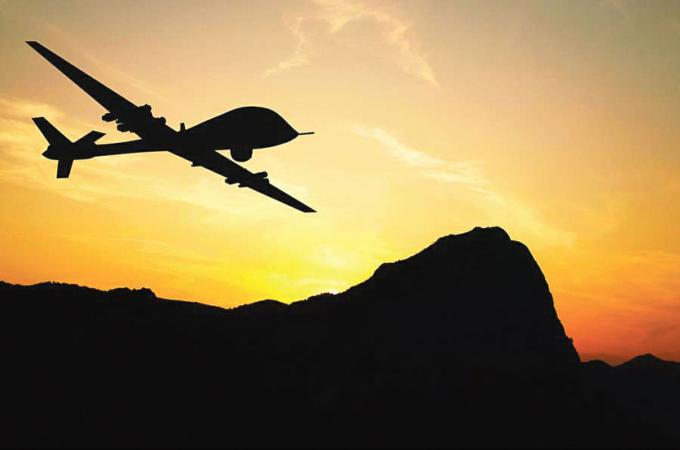Are targeted drone strikes allowed under 'just war theory?'
Washington D.C. (CNA) -- A U.S. drone strike that killed a top Iranian official on Friday has ignited discussion of the Catholic Church's teaching on just war theory. One theologian talked to CNA about the morality of targeting military leaders.
Early on Friday morning at a Baghdad airport, Iran's head of the Islamic Revolutionary Guard Corps-Quds Force, Qasem Soleimani, was killed by drone strikes, for which the U.S. later claimed responsibility. Soleimani's forces are listed by the U.S. as a foreign terrorist organization. Also killed in the strikes was Iraqi militia leader Abu Mahdi al-Muhandis, known for helping fight against ISIS.
The U.S. has defended the drone strike as a legitimate removal of a man responsible for the deaths of hundreds of U.S. military personnel in past years, and the more recent attacks of U.S. bases in Iraq by Iranian-backed forces.
Dr. Kevin Miller, a moral theologian at the Franciscan University of Steubenville, spoke with CNA about the application of Catholic just war theory to the strike.
Catholic teaching on the use of lethal force "doesn't rule this sort of thing out," he said of "targeted killing of military leaders." If Soleimani was behind attacks on the U.S. embassy in Baghdad, as alleged, then "you're talking about an attempted attack on American civilian lives," Miller said.
However, Miller cautioned, prudence must be considered with such a use of force, namely the possibility of greater evils replacing the threat that Soleimani allegedly posed to civilians. If another official were to take his place and carry on with similar threats to civilians, or if Soleimani's death caused a "power vacuum" with mob rule in the streets, then the situation could be "worse rather than better."
And given Iran's proxy wars in Iraq and elsewhere in the Middle East, "if this causes, on balance, an escalation of that war -- even if it maybe for the moment puts an end to attempted attacks on our embassy -- if this, on balance, causes an escalation of the situation, a worsening of this proxy war that's going on, I don't see how that makes the situation, on balance, better rather than worse," Miller told CNA.
"I think this is one of those situations in which you really have to make sure that you're not falling into that trap of saying 'what could possibly go wrong?' without really thinking the matter through," he said.
The question of legality also surfaced. Agnes Callamard, U.N. Special Rapporteur on Extra-Judicial Executions and director of Global Freedom of Expression at Columbia University, tweeted on Jan. 3 that "Outside the context of active hostilities, the use of drones or other means for targeted killing is almost never likely to be legal."
When such force is used, she said, it can only be done in cases of an "imminent threat to life" -- one which carries a "very narrow" standard for cases of "anticipatory self-defence."
"This test is unlikely to be met in these particular cases," she tweeted.
The threat of a regional conflict to vulnerable religious minorities in Iraq prompted concern from Christian aid and advocacy groups.
"Heightened tensions bring increased possibility of counterattacks on religious minorities," said Toufic Baaklini, president of the group In Defense of Christians, in a statement on Friday.
"We can count on more instability, and instability is not the friend of Christians and other minorities," said Michael La Civita of the Catholic Near East Welfare Association, a pontifical aid organization.



















